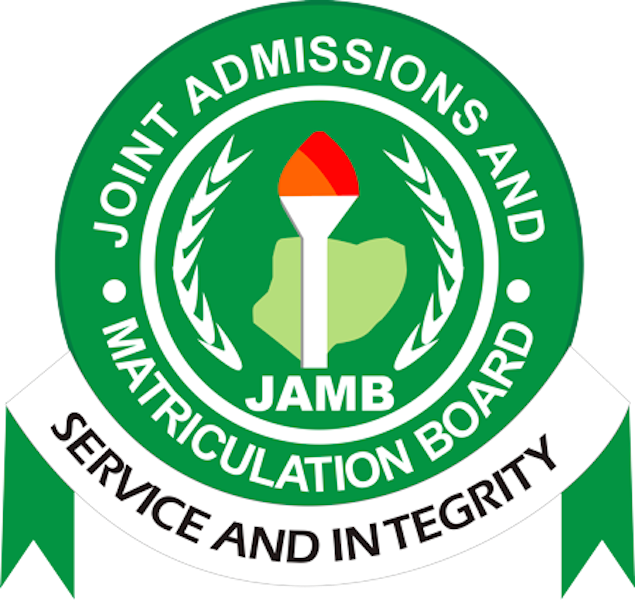Finally, the Buhari administration seems set to pay what appears a reasonable attention to the education sector in the country with the recent appointment of new heads for no fewer than 17 agencies in the sector. This is one sector in which everyone, directly or indirectly, is a stakeholder. Even at the president’s age when all seems to be over with formal education, he’s still basking in the euphoria of the graduation of a few of his children. Yet, the grand children must be engrossed with education at different levels. And luckily (?) for Nigerians, the vice-president is a professor. It is therefore believed that the professor vice-president will not want to be indifferent to solving some of the problems he has had to be concerned with before his foray into politics. If need be, Professor Osinbajo needs be told that his colleagues in the Academic Staff Union of Universities (ASUU) still have a long list of wishes which may not require so much of special efforts to resolve by his government. Sheer sincerity of purpose will do.
Most visible in the news today is the reality that the administrators of the Joint Admission Matriculation Board (JAMB) have exhausted whatever was left of their creativity. I recall with nostalgia that this same board had been so efficient in the past that it even made us believe in the post office system in the country. At a time JAMB didn’t have an examination centre in my community, I wrote its examination way back in the early 1980s having to travel more than 20 kilometres. The scores were eventually released to different universities including my own first choice, the University of Ilorin. There was no unpleasant story. The local mail man, as he had done with several ordinary mails in the past, strolled to our family house one morning to deliver my admission letter. Thus began the process of my studentship at the nation’s “better by far university” where the newly appointed registrar of JAMB, Prof. Ish’aq Oloyede, was my ‘senior’. My university is one of the few in the world today which sticks to a set of traditional dates for its most important traditional ceremonies, ranging from convocation to matriculation and so on.
The anecdotal bit here isn’t a sheer tale. As a university teacher that I am today and one that has also had the uncommon advantage of undertaking academic programmes in some high performing institutions with highly rated scholarship and fellowship awards, one cannot but feel for today’s children in schools. What exactly are they made to get excited with? A couple of weeks back, a 300-level student of mine had excused herself from one of the classes I teach so she could go and process her admission letter which was yet to be released by JAMB! Perhaps she doesn’t even have much reason to blame JAMB having been admitted, some would want to placate her.
It is particularly most disturbing that the hope of several ambitious children of this digital generation of a world with no boundaries again, has been shattered by JAMB because some officials simply elected to be unduly callous and unpardonably out of tune with the trend in the sector. How do we explain the deployment of slow and low performing computers for fate deciding tests like Universities Matriculation Examinations that JAMB conducts? The unpalatable consequence of this is that some unlucky candidates who are assigned such systems end up with scores below their real capability. Anyone who reads the interviews often conducted for first class graduates of some of our universities would readily recall that some of these students have had to write this examination more than once perhaps not because they didn’t deserve to pass at the first sitting.
Added to the challenge of infrastructure now is the rather absurd confusion which JAMB is currently exhibiting with regards to deciding the parameters of candidates’ admission. What has happened to the findings of studies conducted on these by our colleagues in the realm of test and measurement? What has happened to the easier option of consultation with relevant experts who may have conducted such studies in the first place? What is the trend in other parts of the world? The nation cannot continue to agonise over the cluelessness of the past government, especially in a sector that determines the present and future rating of the nationals and also in comparison with the nationals of other countries of the world. Time waits for no one.
It’s commendable enough that the Buhari administration announced that its crash employment programme for 500,000 graduates includes the most indispensable tool of this age of technoliteracy. Without further delay, it should, for now, initiate a strong collaboration with computer manufacturers for the setting up of computer laboratories for tertiary institutions. This idea should serve the purposes of examination centres for JAMB candidates and even assorted recruitment and promotional examinations through which it could attract at least maintenance revenues. It will as well function as training centres for relevant courses in the same institutions. Computers still constitute scarce facilities in our tertiary institutions!
Having been celebrated by his contemporaries nationally, continentally and globally, Prof. Oloyede surely knows what to do with the human factor in JAMB being a most incorruptible academic and administrator of a most admirable standing, I dare say.
Not the least needed is the radical strategy to deal with the so called special centres for JAMB examinations. How did we get here? A JAMB that will surrender its sovereignty to “private ownership” does not deserve taxpayers’ support. It is shameful enough that the degeneracy that has befallen our public education system has given rise to unwieldy outside-of-school interventions to restore the hope of our ambitious youngsters. To continue to sustain the extension of the conduct of JAMB examinations to private arena will be most indecent and unprofessional. Oloyede’s profile which smacks of distinguished patriotism certainly has raised the hope of many of us who have invested in the Nigerian state project as students’ union activists and graduated into development enthusiasts and lately scholars.
For the Tertiary Education Trust Fund (TETFUND), its been comparable to what the renowned playwright, Ola Rotimi, calls “one slender body of joy”. A great measure of lethargy and territorialism injected into it. It, indeed today, functions as if it isn’t the outcome of the rigorous vision of members of the community it has been established to serve. Be it known by the world that it is one of the many recommendations following the research efforts of some of our fine scholars to relieve the sector of some burdens.
Today, a casual tour of a number of our academic institutions readily reveals conspicuous interventions of this fund. One cannot imagine what the state of the nation’s tertiary institutions could be without the support of this Fund. The Fund has indeed done well to also advance out invaluable support to institutions for personnel development. Some otherwise disoriented scholars have been purged of hopelessness. It is particularly commendable that under Prof. Yakubu, the Fund published a list of some institutions that failed to retire some funds that they had collected. It is however not certain if the Fund still does this.
An establishment like TETFUND with monumental resources has the capacity to accelerate Nigeria’s return to glory as envisioned by President Buhari and shared by a number of patriots. It is quite interesting that the accolade the University of Ilorin attracts to itself today also derives partly from TETFUND’s support. It will therefore not be out of place for TETFUND to learn from the tradition of high performers like the Universities of Ibadan and Ilorin, both of which ensure that certain dates are sacrosanct. For instance, it is well known across all institutions that collaborate with TETFUND that there are deadlines for the submission of applications for conference grants to lecturers. On the other hand however, TETFUND does not seem to have control over specific dates when such grants may be released to the potential beneficiaries. The potential beneficiaries are made to wait pitiably without explanation. This becomes increasingly surprising in an age in which computerisation has substantially demystified precision. TETFUND, the new head, Abdullahi Bichi Baffa, should realise, has competitors in local and international grant making organisations from which their supposed beneficiaries also benefit without having to genuflect to suggest corruption. Indeed, hoping the new head has experienced it, the various philanthropic organisations in town relate with their beneficiaries as partners and collaborators.
The practice of whimsically cancelling programmes for which applications are sought by the Fund is also most discourteous. It is unimaginable that TETFUND will solicit applications in form of proposals from university lecturers, get professors to assess same only to summarily announce that it would no longer be in a position to support such without any apology to the professors who assessed the proposals nor the ‘perceived’ beggars who had sweated it out to submit the proposals.
Development work has zero tolerance for asymmetrical relationship between partners. It is imperative to register one fact with TETFUND managers here. TETFUND grants are not spectacularly outstanding. Grants given by other charities for the same purposes are often fatter. They also need to check out the fact that the same brilliant minds they do not deem as deserving courtesy are most specially treasured by several other development and donor agencies. I recall with pride how, for a particular contract, DFID realising I was a university teacher gave me the courtesy of the freedom to budget the specific measure of time I could spare for them as a consultant yet with a fantastic reward.
Whatever level of transparency TETFUND currently lays claim to can also be improved upon in the spirit of the change mantra of the Buhari administration. For instance, it would not be out of place to publish its annual report and accounts in details. One can imagine if TETFUND will not be answerable to its partners, how does it get to reckon with their input in conceptualising plans? Again, all credible grant makers publish annual reports and accounts, so this peculiarity of half measure approach to transparency by TETFUND is better revised as soon as possible.
For JAMB and TETFUND, tertiary education in Nigeria is a common denominator from which a lot is expected. Will they measure up this time with new heads to captain their ships?



Nigeria education sector is big mess. As for the failing of computers during an examination is very bad because due to their poor performance a child whose capacity is enough to pass that particular exam is bound to take that exam again.
If we want Nigeria education sector to better then we as citizens need to do better because in what name is special centers ???
The funniest part is that this special centers is not only used for jamb only , it is also used for waec , neco and gce . We have to a stage in Nigeria that everything is corrupted .
Even to gain admission into some university if you don’t have proper connections there’s no chance of you entering while the one with good grades and without connections are left behind.
Such an insightful article sir. One can only pray that the education sector in Nigeria improves.
I believe if TETFUND works hard and diligent, it will make a great change in the Nigeria Education
Very nice article
Impressive article
I wish our govt can focus on this transparency like he said